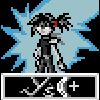I worry about the same thing as well considering the fact people get "inspired" by others all the time. I would discuss pieces of the idea or discuss it with others closer to you. Discussing in pieces may or may causes an overwhelming negative or positive response but it still useful data.
Sharing ideas
Take your time to get to know people. Build a relationship. Game development is not an easy task.
It's interesting, even though I do agree 100% with everything already said and stand myself on the same notion that ideas have to be shared, there are still thing few interesting edge cases that I'm not quite sure about. Ok, let's say that just a raw idea has a little value, but what about demos and half-implemented products? Do you think it's safe to share them long before release with a wide unknown audience on the Internet? There are clearly some quite unique pieces of game design, that are relatively simple-ish to implement and quite distinctive at the same time. Games like Factorio, Minecraft, KSP? Would it be wise to disclose their core gameplay in ready-to-play state months before actually releasing it? Especially if your team is small and resources are limited... Well, I tend to think that points mentioned above can be still applied here, but can't say I'm 100% sure about it... at least not in some cases.
Do you need or have a team? Will you get the project done? Can you get it done? Do you need money? If you have the team and the funds then start the project. Make a you tube of it when its nearly done.
Minecraft was originally the work of a solo developer, was not a novel or original idea, and was available as a near-unplayable pre-beta form from very early in development.
KSP was Early Access, and available for a year or so before that, and didn't come out of beta for 4-5 years.
- Jason Astle-Adams
- Jason Astle-Adams
Well, Early Access is already selling the playable game, doesn't quite fall into a category 'sharing an idea on early stage'. And yep, Minecraft probably not the best example. Anyway, there is a difference between sharing an idea and sharing all information during development process which might include sensitive and costly R'n'D things, and that's what my point is about. If it wasn't like that, and sharing everything was always beneficial, we would see a line of developers willing to share everything they do with community, but that doesn't happen. Instead, companies compose NDA's for employees and focus test users, and put protective film on office windows, keeping development in secret up until a certain point.
If i want to share pre-development intel so to speak, i only share the concept, setting, story of my game and keep the vital stuff like gameplay-design to myself until demos/betas are ready. So i can understand your nervosity
but in the end it is your call
If it wasn't like that, and sharing everything was always beneficial, we would see a line of developers willing to share everything they do with community, but that doesn't happen. Instead, companies compose NDA's for employees and focus test users, and put protective film on office windows, keeping development in secret up until a certain point.
I don't think this is really about preventing idea theft, though.
Some of it is about managing expectations. You want to control how your work is portrayed in the marketing materials, and want to avoid negative press getting out about features that don't look good (yet), and may also want to avoid people reporting on features that might end up getting cut.
Code and art assets however provide clear business benefits. If you pay people $10000 to work on something for a month, then another company gets that stuff for free, then they get to develop at a $10k advantage. But those aren't really ideas, those are products (or sub-products, if you like).
It's certainly possible that a sufficiently good idea and a sufficiently transparent implementation could, if observed prior to full launch time, could be quickly cloned by a malicious company. Cloning is becoming a bigger problem in these days of mobile game companies with large resources and marketing budgets. So I might be more cautious these days about open development than I would have been 5 or 10 years ago. But the chance of an idea alone being good enough to merit someone else taking it entirely from concept to completion seems minimal; the main benefit of cloning games is that someone else has done most of the prototyping and design work for you, and an idea is only the seed for that.
I don't think this is really about preventing idea theft, though.If it wasn't like that, and sharing everything was always beneficial, we would see a line of developers willing to share everything they do with community, but that doesn't happen. Instead, companies compose NDA's for employees and focus test users, and put protective film on office windows, keeping development in secret up until a certain point.
Some of it is about managing expectations. You want to control how your work is portrayed in the marketing materials, and want to avoid negative press getting out about features that don't look good (yet), and may also want to avoid people reporting on features that might end up getting cut.
Yeah -- the games that I've worked on with the strongest secrecy have been movie tie-ins and sports games, which don't have any great secret sauce to protect. The secrecy was demanded by the publisher for other business / publishing / marketing reasons, not for IP protection.
The games that I've worked on with the least amount of secrecy are the actually innovative indie games :)
. 22 Racing Series .










